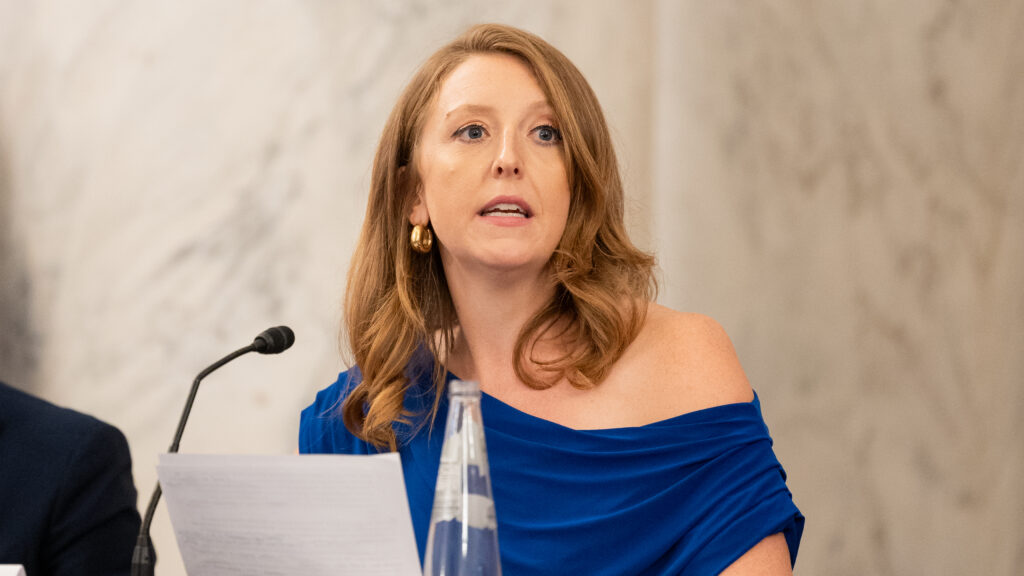Copyright breezyscroll

Casey Means, a Stanford-trained physician turned wellness entrepreneur and influencer, is set to appear before the Senate for her confirmation hearing to become the next U.S. Surgeon General, a nomination that has already stirred controversy across the medical community. Who Is Casey Means? Means, 38, is best known as the coauthor of the 2023 bestseller Good Energy, a book on diet and metabolic health she wrote with her brother, Calley Means. A former Stanford Medical School graduate, she began residency training in head and neck surgery but left before completing it. She does not hold an active medical license, a striking departure from every past U.S. Surgeon General, all of whom were fully licensed physicians. Since leaving clinical practice, Means has built a large online following through the wellness and “functional medicine” space. She co-founded a company promoting continuous glucose monitors (CGMs) as tools for tracking metabolic health and has made frequent appearances on health and lifestyle podcasts. Her message — blending nutrition, spirituality, and systemic critique, often overlaps with the rhetoric of her potential boss, Health Secretary Robert F. Kennedy Jr. Both have accused federal health agencies of “corruption” and questioned mainstream medical practices, from vaccines to pharmaceuticals. What the Surgeon General Does Known as the “nation’s doctor,” the U.S. Surgeon General leads the 6,000-member Public Health Service Commissioned Corps — a team of physicians, nurses, and scientists deployed across federal agencies. The surgeon general’s primary role is to communicate health information to the public and advise the government on medical and public health issues. Past holders of the office, including Dr. Vivek Murthy and Dr. Jerome Adams, have issued advisories on topics ranging from mental health to the opioid crisis. Why Her Nomination Is Controversial Lack of Medical Credentials Means’s incomplete residency and inactive medical license have drawn sharp criticism from former officials and health experts. “The Senate’s likely confirmation of Casey Means as Surgeon General, an individual who never completed medical training, would mark a disastrous precedent for the nation’s top public health role,” said former Surgeon General Dr. Jerome Adams in a statement to NPR. Adams noted that “numerous qualified candidates, fully trained, licensed physicians, could lead the Public Health Service with distinction,” suggesting Means’s nomination reflects “political pressures” rather than merit. Unconventional Health Views Means has expressed skepticism about childhood vaccines and hormonal birth control, endorsed raw milk, and described America’s health issues as a “spiritual crisis.” She’s also been vocal about what she calls corruption in the FDA and pharmaceutical industry, views that align closely with Kennedy’s Make America Healthy Again (MAHA) movement, which emphasizes “natural” approaches to health and distrust of large institutions. In a 2023 congressional roundtable, Means said, “What we are dealing with here is so much more than a physical health crisis, this is a spiritual crisis.” Financial Conflicts of Interest Ahead of her confirmation hearing, financial disclosures revealed that Means has business ties to the supplement and wellness industries. She has pledged to divest from those holdings and resign from her CGM company if confirmed. Still, the overlap between her entrepreneurial ventures and her potential government role has raised concerns about conflicts of interest. The Hearing: What to Expect The Senate Health, Education, Labor, and Pensions (HELP) Committee is scheduled to question Means remotely, an unusual arrangement for such a high-profile nomination. The committee has not explained why she will not appear in person, though her brother shared in May that she is pregnant. Lawmakers are expected to press her on several issues: Her lack of an active medical license Her promotion of unverified health claims Her business relationships in the wellness sector Her alignment with Kennedy’s controversial public health stances It has been more than five months since former President Trump announced her nomination, replacing his original choice, Fox News medical contributor Dr. Janette Nesheiwat. Despite the growing opposition, the White House appears confident in her confirmation chances. In past cases, the administration has withdrawn nominations before hearings when the outcome looked uncertain. Divisions Within the MAHA Movement Interestingly, some criticism of Means has also come from within the Make America Healthy Again movement itself. Certain Kennedy allies have voiced doubts about whether she would be sufficiently aggressive in challenging vaccine policies or pushing the movement’s more radical positions. This internal friction reflects the broader ideological tension within MAHA — a coalition that blends libertarian health beliefs with populist distrust of traditional medicine. Supporters Say She Reflects a Changing Era Kennedy and Trump administration officials have defended Means’s nomination, framing it as a sign of progress in “rethinking health leadership.” Kennedy has called her “the greatest surgeon general ever,” citing her advocacy for metabolic health and prevention. Supporters argue that her focus on diet, lifestyle, and environmental toxins is exactly what the country needs amid rising rates of obesity, diabetes, and chronic disease. They also point to her communication skills and ability to reach younger audiences online, something previous Surgeons General have struggled to do. The Broader Question: What Should a Surgeon General Represent? Means’s nomination highlights a growing divide in how Americans think about health leadership. Should the Surgeon General be a credentialed physician grounded in traditional medicine or a public communicator who connects with wellness-minded citizens outside the establishment? The answer may shape the future of public health messaging in the U.S., especially as distrust of medical institutions grows. If confirmed, Casey Means would not only be the nation’s top doctor without an active medical license, she would also symbolize a cultural shift toward a more ideological, influencer-driven approach to health policy.



